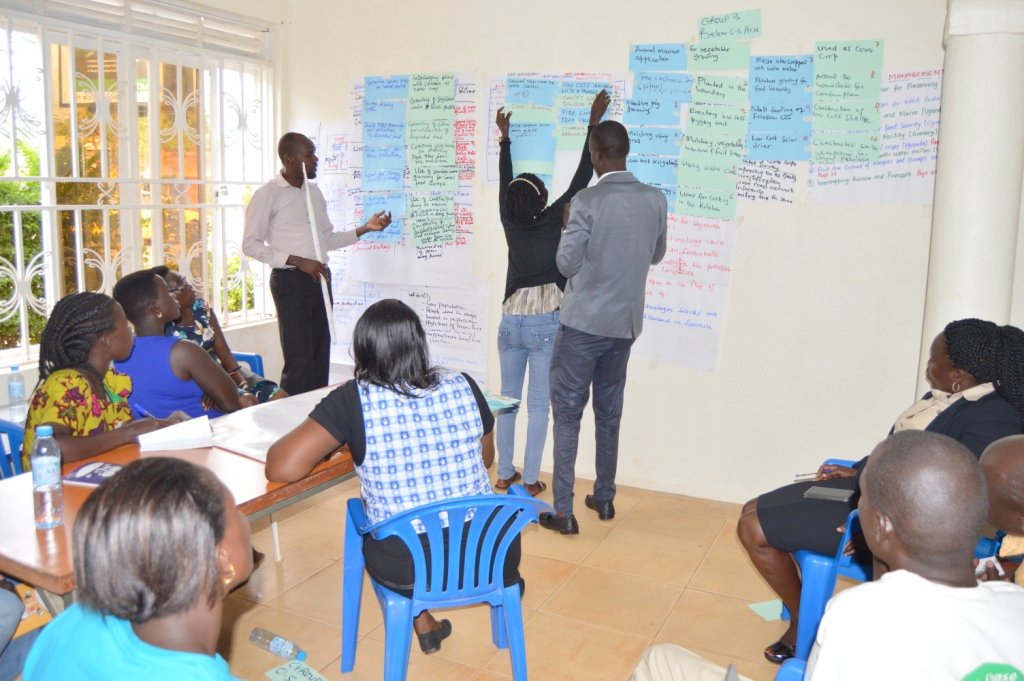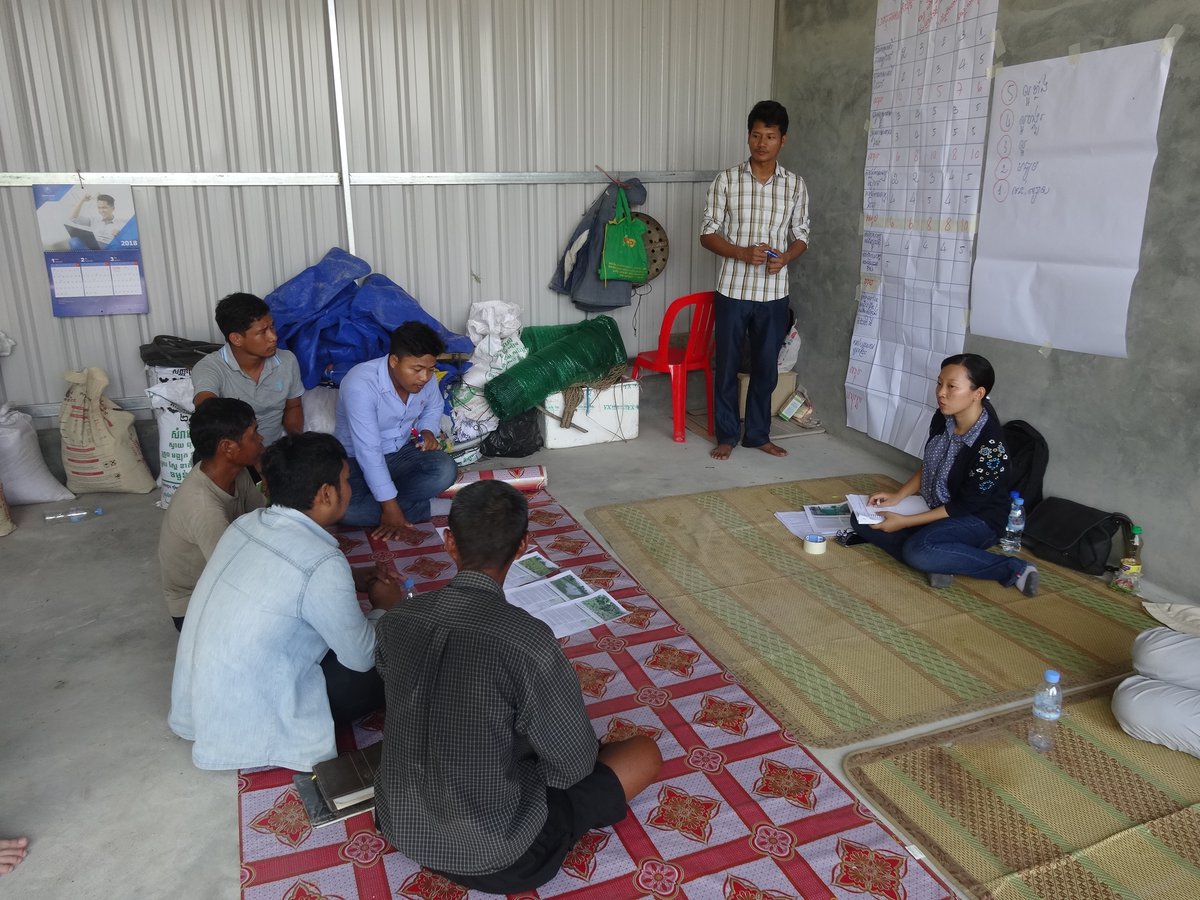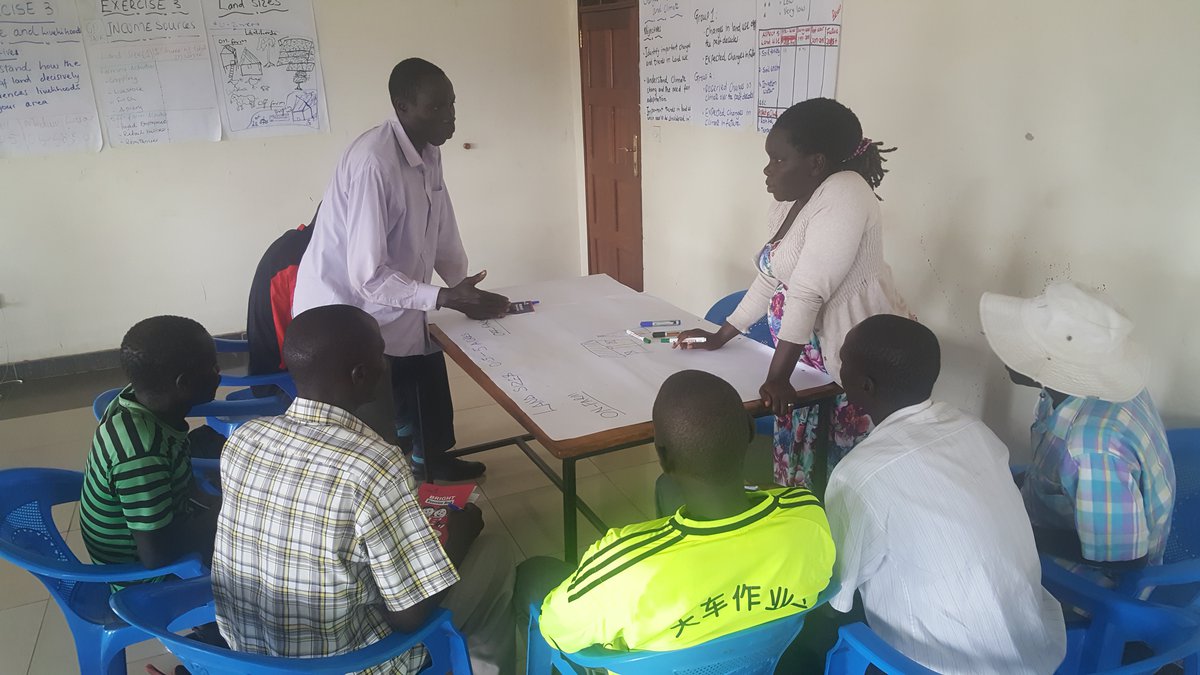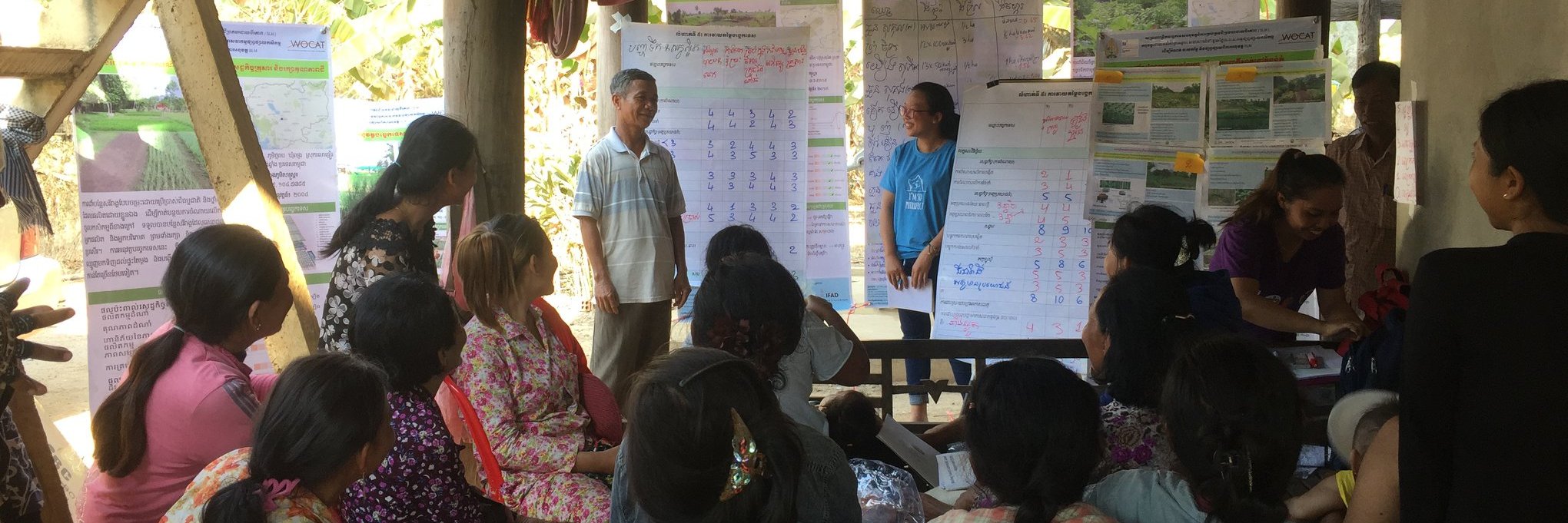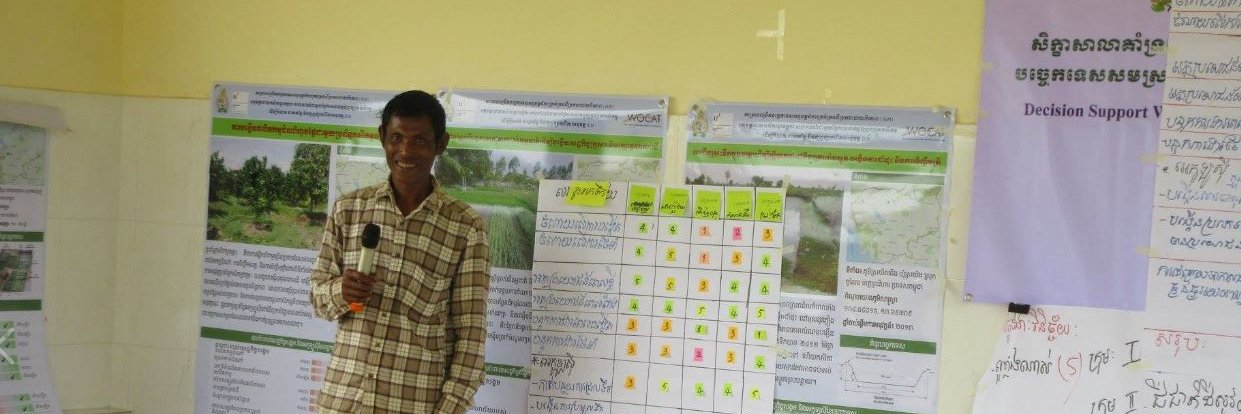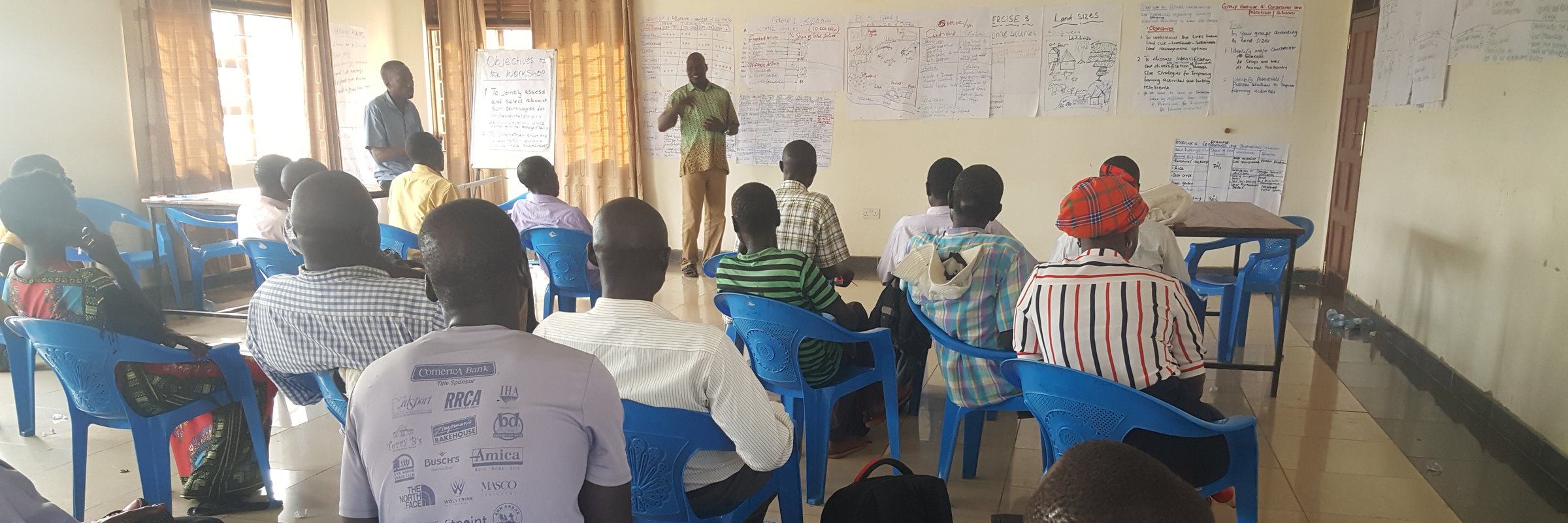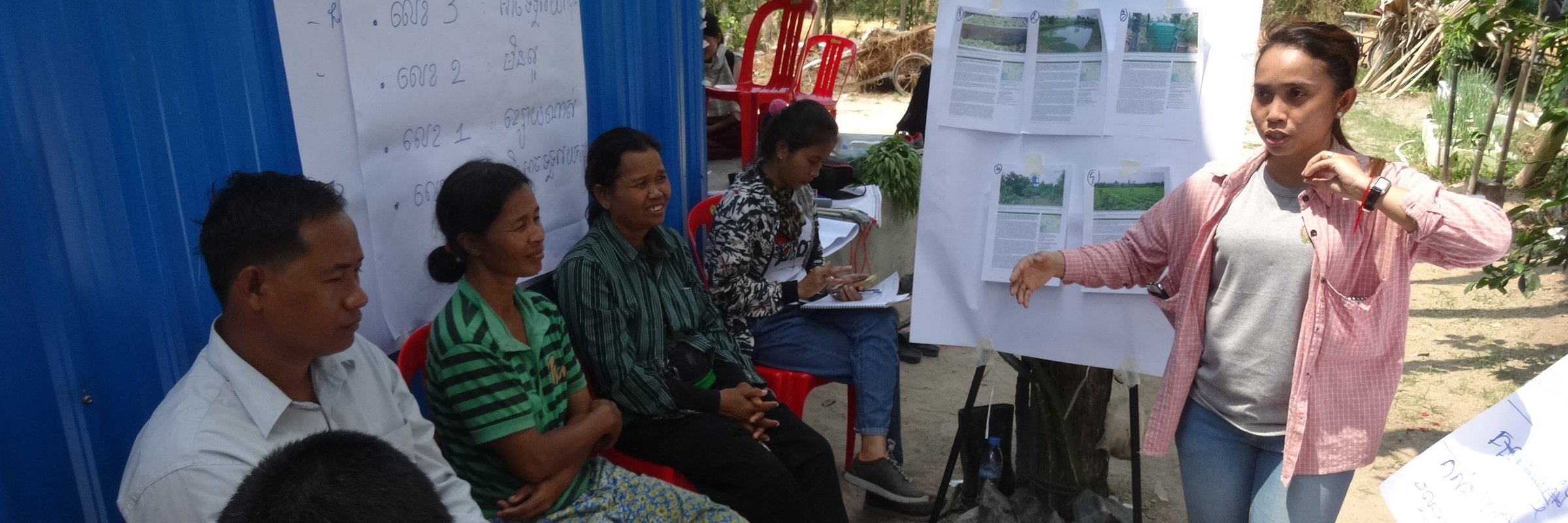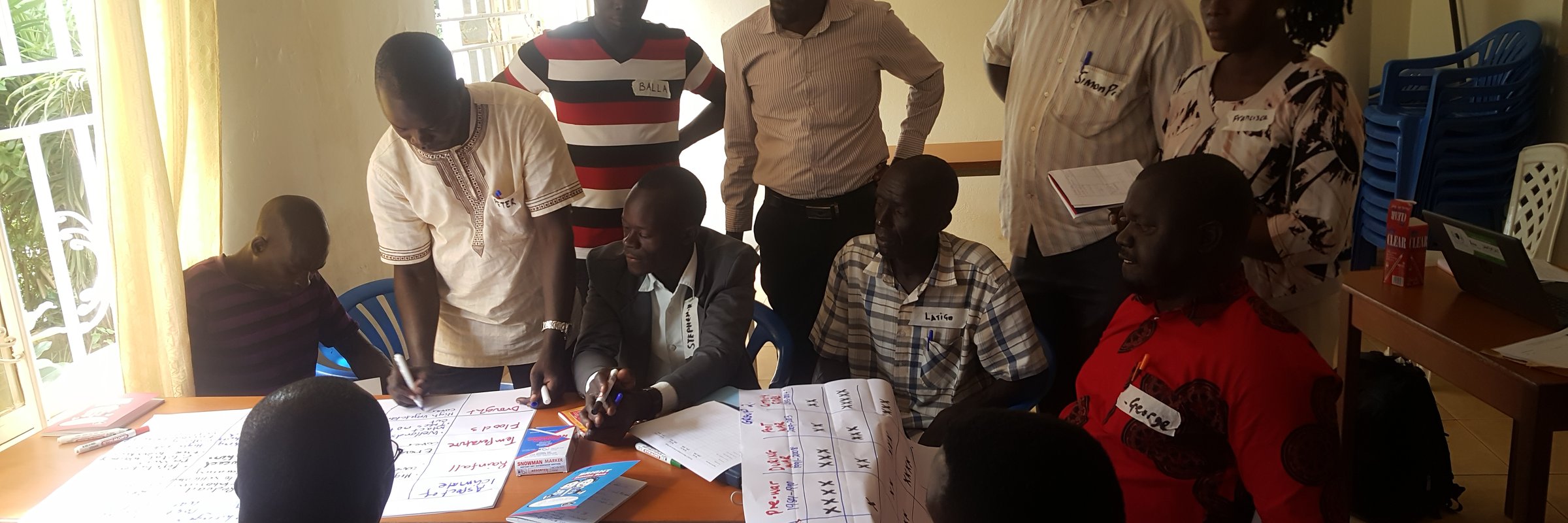Decision Support
Evidence-based decision support for SLM is one of the main objectives of WOCAT.
- Home
- Decision Support
To combat land degradation worldwide, mainstreaming and scaling out SLM has to be based on evidence and informed decision-making at all levels. SLM is best achieved through a combination of effective SLM technologies at the landscape level, implemented via appropriate SLM approaches, and supported by an enabling environment.
Decision Support Framework for mainstreaming and scaling out SLM
FAO and WOCAT, building on the former FAO-LADA (Land Degradation Assessment in Drylands) and DESIRE projects and relevant WOCAT experiences, have developed a methodological framework for Decision Support (DSF) for Mainstreaming and Scaling out SLM from national to local landscape levels. The framework with its seven modules and different entry points offers a detailed description of activities, tools, and methods that are available for use and adaptation by different countries to facilitate SLM decision-making.
The DSF is being applied and tested in the 15 countries involved in the GEF/ FAO project Decision Support for Mainstreaming and Scaling out SLM (DS-SLM) and adapted to the specific needs in each country and at each level of decision-making. The DSF enables the stakeholders (government and non-government institutions, civil society organizations, research, academia, private sector) to make informed decisions on mainstreaming and scaling out SLM by providing in-depth knowledge, understanding, and analysis of the effects of land use change and management, effectiveness of SLM responses, and evidence on the reasons why it is crucial to invest in SLM, and where, how, what, and when to invest. Priority SLM mainstreaming strategies are evaluated and selected through a compilation of knowledge and analysis of experiences, and negotiation of various options and criteria by national and local decision-makers and stakeholder groups.
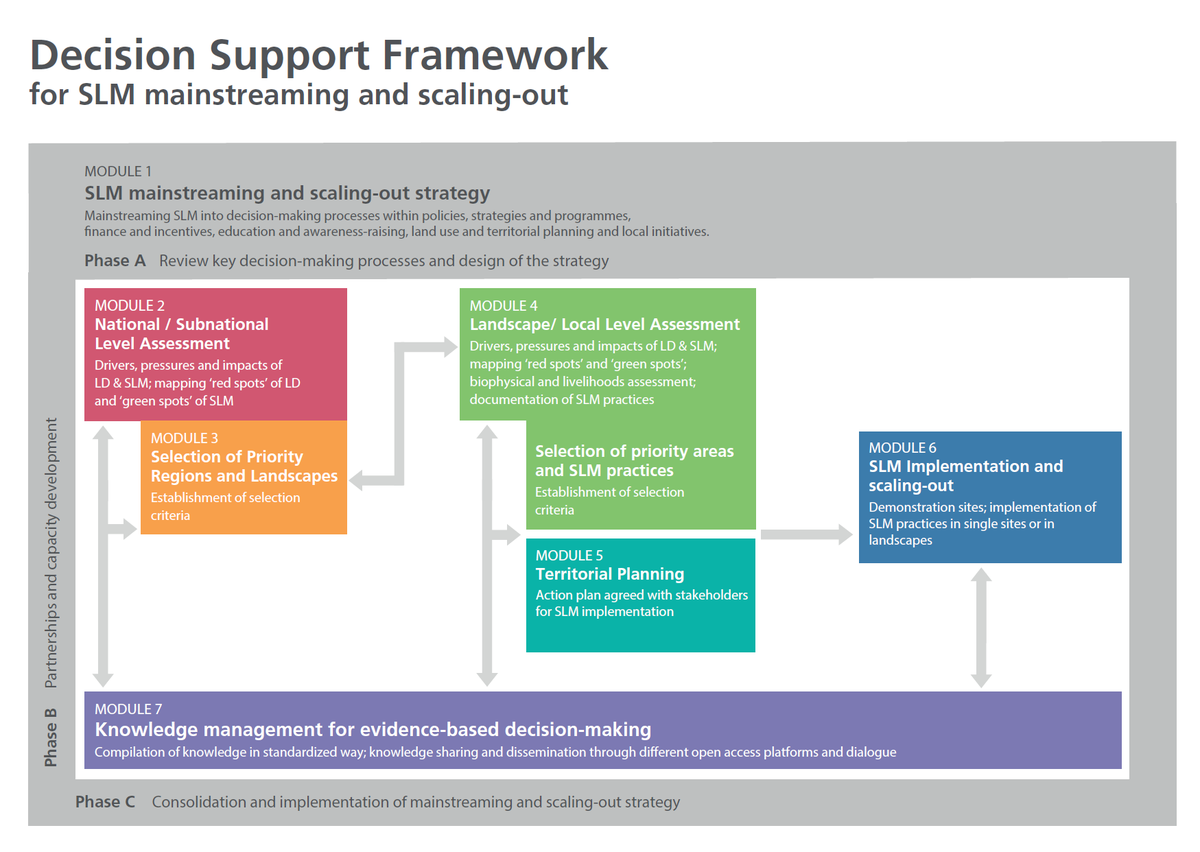

The DS-SLM project contributes to halting and reversing current global trends in land degradation by supporting 15 countries in mainstreaming and scaling out SLM.
Final Publication
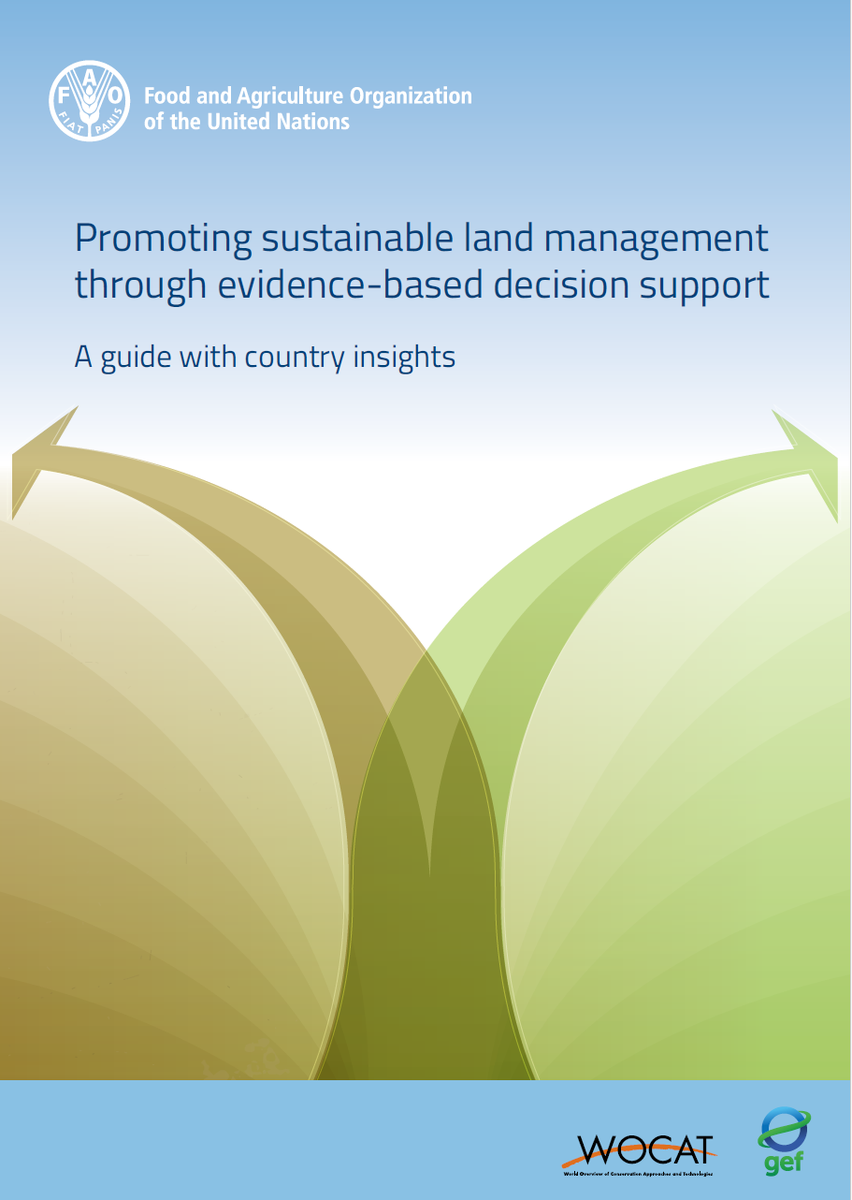
Participatory stakeholder workshops for the selection of SLM practices at local level
In order to facilitate informed SLM decision-making at the local level, WOCAT has developed guidelines for the realization of participatory stakeholder workshops, which are based on the DESIRE project stakeholder workshops methodology which was also applied in the Knowledge Management for Integrated Watershed Management and Disaster Risk Reduction project in Tajikistan and the RECARE project.
The objectives of the two-day workshop are to:
- Jointly assess and select relevant SLM technologies for implementation on demonstration plots, farmer-to-farmer exchange, and training; and
- Strengthen trust, dialogue and collaboration among concerned stakeholders.
The methodology is based on participatory principles. The workshop moderators guide the group, usually consisting of 1-3 extension workers, 1-2 researchers, 6-10 farmer representatives and local authorities, through a series of consecutive steps that assist the stakeholders to voice and exchange their ideas on which SLM technologies are most promising to be implemented. At the end of day 2 participants assess promising SLM technologies based on selected economic, social and environmental criteria in a scoring exercise producing an overview matrix which is used for the negotiation and final selection of SLM technologies.
The workshop is comprised of the following seven exercises with the option to add specific exercises needed in a certain problem context (e.g. on zoning, integrated farming systems). The WOCAT Technologies and Approaches documentation serves as the evidence to be used during the workshop.
DAY 1: Understanding the local context
Ex. 1: Introduction to the workshop
Ex. 2: Observed changes in land use and climate
Ex. 3: Land size and livelihoods
Ex. 4: Land management problems and solutions
DAY 2: Assessing and selecting relevant SLM technologies
Ex. 5: Selection of technologies to be assessed
Ex. 6: Assessment of promising technologies
Ex. 7: Evaluation and closure of the workshop
The methodology has been used, amongst others, in the IFAD-funded project Scaling-up SLM with smallholder farmers where 482 stakeholders participated in stakeholder workshops led by national project partners in collaboration with extension services and local partners in Uganda, Cambodia and Lao PDR.
If you are interested to learn more about the stakeholder workshop methodology and receive the guidelines, please contact the WOCAT Secretariat.
